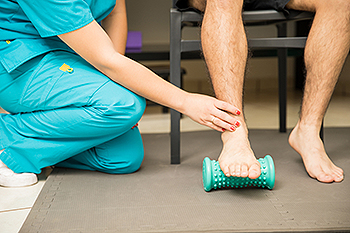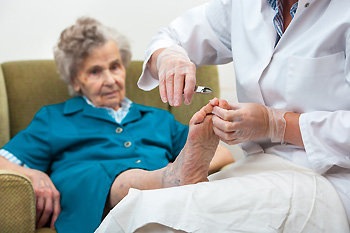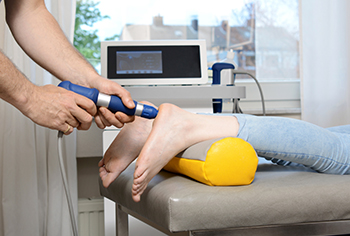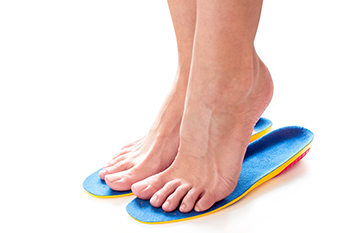
There is no mistaking heel pain when it happens. It can be a gradual occurrence, and many people ignore the first pangs of heel pain. A common reason people experience heel pain is from a condition known as plantar fasciitis. It affects the plantar fascia, which is located on the sole of the foot and connects the heel to the toes. This band of tissue can become inflamed for several reasons, including wearing shoes that do not fit correctly and standing on hard surfaces for most of the day. Heel pain, often the first symptom of plantar fasciitis, can become severe if not treated promptly. Patients have found mild relief when the affected foot is elevated because pressure on the heel is reduced. There are specific stretches that can help the pain of plantar fasciitis. An effective stretch is done by standing on a step, followed by lowering the heels one at a time until a gentle stretch is felt. If you have with heel pain and think it may be caused by plantar fasciitis, it is strongly suggested that you speak with a podiatrist as quickly as possible so the correct treatment can promptly begin.
Plantar fasciitis is a common foot condition that is often caused by a strain injury. If you are experiencing heel pain or symptoms of plantar fasciitis, contact one of our podiatrists from Associates in Podiatry, PC. Our doctors can provide the care you need to keep you pain-free and on your feet.
What Is Plantar Fasciitis?
Plantar fasciitis is one of the most common causes of heel pain. The plantar fascia is a ligament that connects your heel to the front of your foot. When this ligament becomes inflamed, plantar fasciitis is the result. If you have plantar fasciitis you will have a stabbing pain that usually occurs with your first steps in the morning. As the day progresses and you walk around more, this pain will start to disappear, but it will return after long periods of standing or sitting.
What Causes Plantar Fasciitis?
- Excessive running
- Having high arches in your feet
- Other foot issues such as flat feet
- Pregnancy (due to the sudden weight gain)
- Being on your feet very often
There are some risk factors that may make you more likely to develop plantar fasciitis compared to others. The condition most commonly affects adults between the ages of 40 and 60. It also tends to affect people who are obese because the extra pounds result in extra stress being placed on the plantar fascia.
Prevention
- Take good care of your feet – Wear shoes that have good arch support and heel cushioning.
- Maintain a healthy weight
- If you are a runner, alternate running with other sports that won’t cause heel pain
There are a variety of treatment options available for plantar fasciitis along with the pain that accompanies it. Additionally, physical therapy is a very important component in the treatment process. It is important that you meet with your podiatrist to determine which treatment option is best for you.
If you have any questions, please feel free to contact our offices located in Pittsburgh-South Hills, and Pittsburgh-Bellevue, PA . We offer the newest diagnostic and treatment technologies for all your foot care needs.




